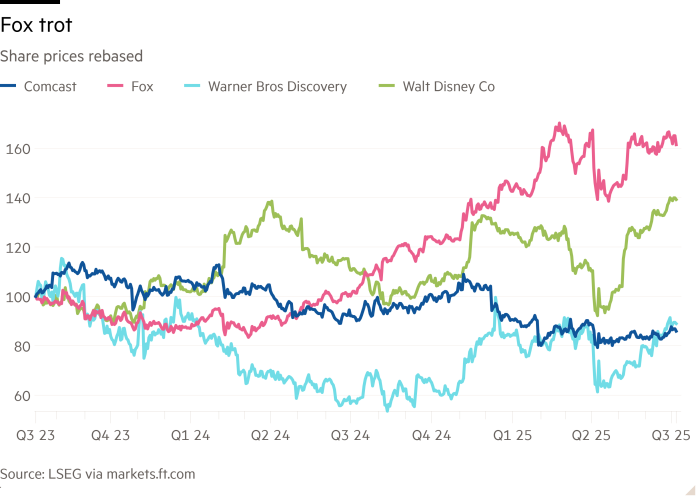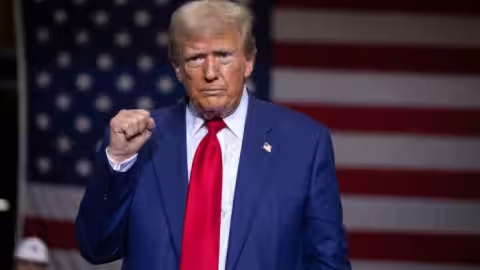Fox Corporation has been riding on a ratings high since Donald Trump’s re-election in November. Shares in the conglomerate — now primarily a news and sports media company after Disney bought out its film and television entertainment assets — are up 63 per cent over the past 12 months. That handily tops the gains at Comcast and Warner Bros Discovery, the parent company of rival cable news networks MSNBC and CNN. But a more fragmented and competitive media landscape also means a second Trump administration could be a double-edged sword.
Fox News, the company’s crown jewel, was the most watched cable TV channel in 2024, according to Nielsen ratings. It averaged 2.4mn viewers during the primetime hours of 8pm-11pm, a 30 per cent year-on-year increase. The audience surge has continued post-election, with the channel averaging 2.8mn viewers in June, a 23 per cent jump compared with the same period the year before. By contrast, MSNBC, which averaged 955,000 viewers and CNN, averaging 642,000 viewers, both recorded declines in viewership.
Advertisers have followed. Fox News has attracted 125 new blue-chip advertisers — including Amazon, JPMorgan and Netflix — since the US election. For the March quarter, the company pulled in more than $2bn in advertising revenue, a 65 per cent jump from the same period last year. Analysts at Bernstein reckon the figure could exceed $6.5bn for the full financial year that ended in June, up from $5.4bn the previous year.
Fox’s challenge is to turn a bump into a durable ascent. At a market capitalisation of $19bn, the company now trades at 13.5 times forward earnings — well above its three- and five-year averages. But for the years between Trump’s two presidential terms, the shares largely traded sideways. A flurry of executive orders and divisive policies keep the administration in the news, but Fox can’t rely on the current White House occupant forever.
That means reckoning with two trends. First, traditional sources of information — TV and newspaper — have seen their influences steadily chipped away by independent journalists, podcasters, social media influencers and content creators. So although Fox may dominate cable news, many people — especially younger viewers — are turning to other right-leaning sources, including podcaster Joe Rogan and upstart channels such as Newsmax and One America News Network.
Perhaps the biggest test will be digital. Fox plans to launch a direct-to-consumer subscription streaming service. Details are scant for now. But attempts by traditional media companies and Big Tech to break into video streaming have been mixed — and expensive. Comcast’s Peacock streaming service racked up $20.7bn in operating costs and expenses between 2020 and 2024. Disney’s direct to consumer streaming services took five years to turn a profit. Trump has given Fox a fillip; it will have to do the next bit on its own.























